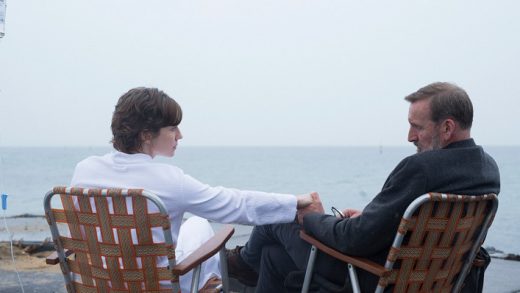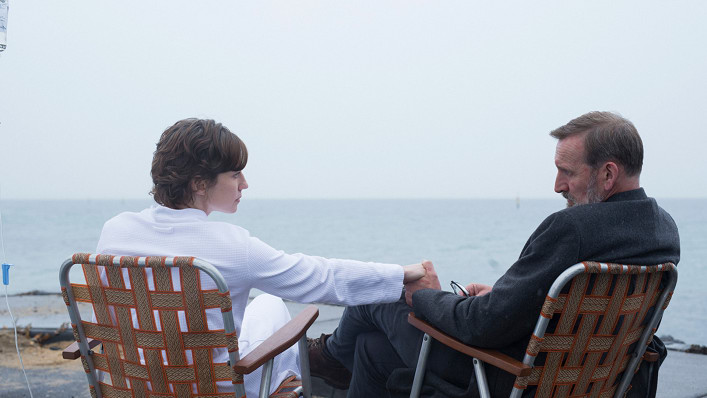The End Is Here: An Exit Interview With The Leftovers Creator Damon Lindelof
Damon Lindelof is feeling weird.
As the showrunner and co-creator of HBO’s The Leftovers, he’s guided one of the most emotionally dense and thoroughly confounding TV shows in recent memory through three seasons–and now he’s reached the end.
Based on Tom Perrotta’s novel, The Leftovers follows a family’s tumultuous odyssey toward any semblance of normality after two percent of the world’s population suddenly disappears. Along with co-creator Perrotta, Lindelof has constructed a world that lives at the intersection of grief, faith, and arrant perplexity. So it’s of little wonder that after 27 episodes of chain-smoking cults, assassinations in the afterlife, and the imminent threat of an apocalypse, Lindelof is feeling weird about bringing it all to a cohesive finale.
“People ask me, ‘Am I going to be satisfied? Am I going to get an unambiguous ending?’ And I say to them, ‘Your threshold for ambiguity is all in the eye of the beholder,’” Lindelof says. “Every season of The Leftovers ended with some degree of ambiguity. Why should the series end with any less just because that’s the end of the story?”
Lindelof is no stranger to ambiguity having been a co-creator of the Russian nesting doll of enigmas that was Lost. However, what will be different this time around is Lindelof’s intake for the inevitable criticism. The finale of Lost was polarizing, to say the least–some found closure, others found themselves plain pissed. It’s not a unique problem, of course: the series finale of any show is fraught with audience opinions and theories of what could have / should have been. That said, a show in the genre of mystery has a far heavier cross to bear.
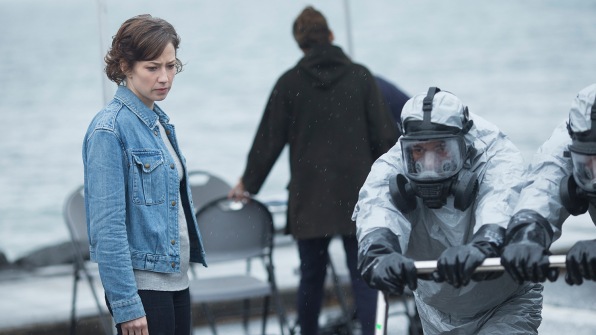
[Photo: Ben King, courtesy of HBO]
“When Lost ended, [executive producer] Carlton [Cuse] and I decided to go radio silent for a month. And I’m going to do the opposite this time because I feel like the fact that we were not available to make our intentions clear about what the finale was, everybody jumped to the wrong conclusion, and by the time we resurfaced it was too late,” Lindelof says. “It felt like we were apologists when in fact I was never apologizing and neither was Carlton. But we were so available up until that moment and then suddenly we were gone.”
Both Lindelof and Perrotta have been fastidious in their position that the biggest question of “where did everyone go?” will never be fully answered. Yet, in the run-up to the finale, there are ample loose ends that can be addressed: Will Kevin reunite with Nora? Will Nora go through with her potentially suicidal plan to see her vanished kids? Did Laurie actually kill herself? Since the scheduled apocalypse didn’t happen, what now? Is Kevin “Jesus” or what?
“If the ending is good enough, you shouldn’t really give a shit what happens to the people after the show is over. I’m OK with leaving them where they are understanding that there is still a life to lead,” Lindelof says. “It used to drive me nuts when people would ask David Chase if there was going to be a Sopranos movie. And I’d be like, did you watch the same series that I did? It fills me with rage and that’s one of the most ambiguous endings in the history of television for one of the greatest shows! I’m not saying that The Leftovers is in the same rarefied air as The Sopranos but it’s aspiring to that.”
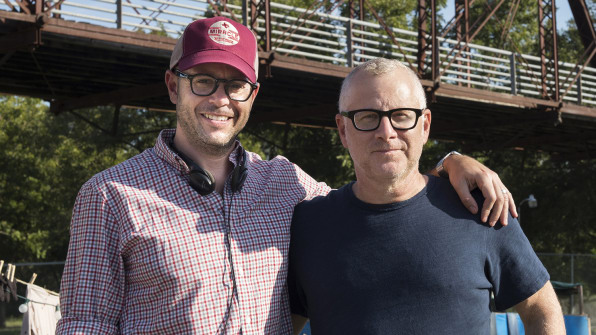
Lindelof’s modesty partly stems from the fact that The Leftovers never really cracked into the zeitgeist like some of his favorite shows did, including The Sopranos and The Wire—or at least not yet. Lindelof is well aware that if he wanted more viewers, he could’ve built the show around teasing the ultimate reveal of where everyone went. Instead, he opted for that ambiguity which he hopes will give The Leftovers a solid shelf-life, based on unpacking its endless theories and references.
“The single most liberating thing about The Leftovers was that Perrotta was absolutely unapologetic in the novel about saying he’s never going to tell you where everybody went and why–and I think that alienated a lot of potential viewers,” Lindelof says.
Couple that with the show’s high-degree of difficulty in processing its dark and intricate plot, and Lindelof can understand why The Leftovers wasn’t necessarily a breakout hit.
“My hope is that it will age well, that 10 years from now The Leftovers is still a show that people think about,” he says. “There’s a dichotomy that exists in all of us where we want something to feel very familiar, but we also want to be surprised. When we hear a song for the first time, we tend to like common musical progressions and verses that sound familiar to us. So when you hear something different, your brain goes, ‘I don’t like this.’ But then you listen to it the second time and it’s not unfamiliar to you. I’m not saying you have to watch The Leftovers twice in order to like it. But it’s definitely not a pop song.”
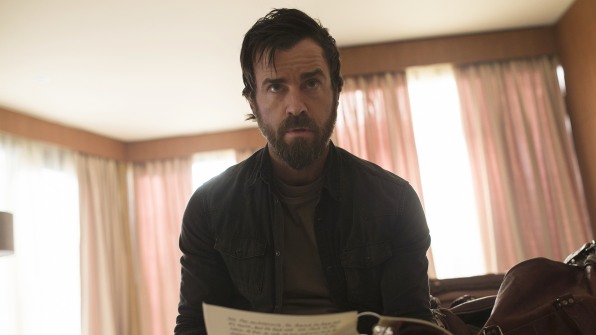
[Photos: courtesy of HBO]
That said, The Leftovers certainly has a devout following that actually helped shape the series’s three-season arc. When Lindelof took on The Leftovers, he knew immediately that it would have four seasons, max.
“[The Leftovers is] about escaping the velocity of grief and so I want to start these characters off in a very trapped place but they have to be moving towards the light,” he says. “For those who survive to the end of the journey I want them to be better off than we found them. I don’t want this to be a show like The Wire where it’s really about running in circles.”
And by the second season, it became apparent to Lindelof that they were more toward the halfway mark of the story they wanted to tell. So when HBO called to say the show had been renewed for a third season, Lindelof decided to make it the third and last.
“In the critical community and the people who really loved this show said, ‘I’m actually OK with it ending here at the end of season two.’ And I was like, that’s signaling that we’ve got to be closer to the end than we are at the beginning,” Lindelof says. “I also think if there were a season four of The Leftovers, all the things that felt fresh at the start would become expectations–you’d start to see the wires.”
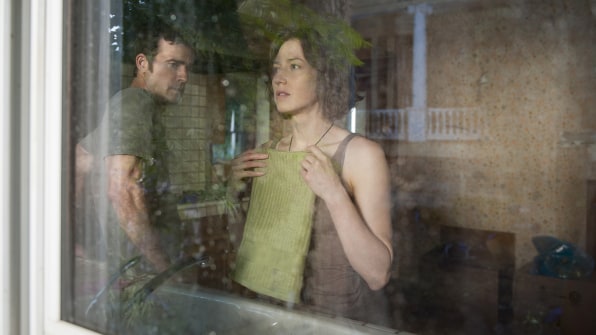
[Photos: courtesy of HBO]
Love it or hate it, creating a show like The Leftovers was a daring foray past the boundaries of traditional storytelling in TV, which makes ending it an inherently formidable challenge. Lindelof mentions it took three weeks alone to come up with the last scene.
“It’s very hard to be original, and even for people who don’t like [The Leftovers], at least they agree that it was something different. The worst thing that I could ever do is play it safe,” Lindelof says. “No matter what happens, I’m really proud of the ending that we chose and very confident that it was the right ending, independent of how it’s received.”
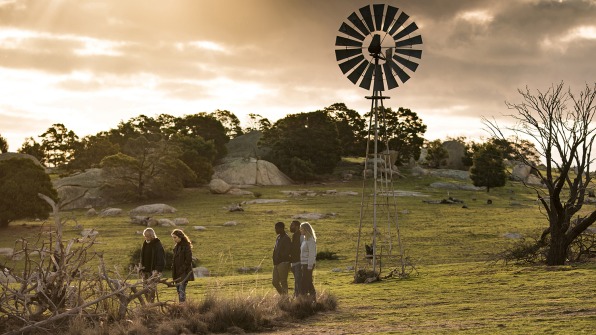
“People have a deep, personal and emotional connection to these shows. Especially in an age of social media, they spend a lot of time thinking and discussing these shows,” Lindelof continues. “And when that experience doesn’t end well by their reckoning it’s like a relationship–your default position when you break up with someone is ‘that was a waste of my time.’ But when you get farther away from the breakup and, more importantly, when you end up in a healthy relationship with someone else, you realize that previous relationship was something that you had to be in. Then you can start to appreciate the journey a little more.”
After three seasons, one of TV’s most impactful (and damn confusing) dramas has come to its finale–and Damon Lindelof is here to manage your expectations.
Damon Lindelof is feeling weird.
Fast Company , Read Full Story
(44)

